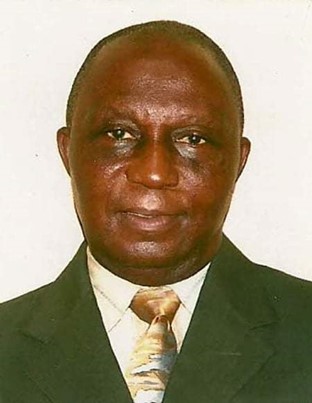ACC partners with staff of Mafanta Correctional Centre
Building partnership with other pillars of integrity in combating graft is a core principle of the National Anti-Corruption Strategy (NACS). It was in this spirit that the Commission’s Northern Region Office on Wednesday 25th June 2014 engaged staff of Mafanta Correctional Centre. (Photo: Open dialogue of probable corruption risk areas within the Correctional Service at Mafanta in Magburaka, Tonkolili District)
Explaining the rationale for meeting, ACC’s Public Education Officer Abdulai Saccoh said it is a core function of the Commission to continuously facilitate robust and sustained public education campaigns to spread anti-corruption messages to different spectrum of the society and to solicit support in the fight. He noted that the Commission as an anti-graft agency is geared towards restoring integrity and accountability in public life. Public Educator Saccoh emphasized that the only way state institutions could be liberated from this systemic corruption was through shared collaboration between the people and ACC. He stressed that combating graft should not be seen as the business of ACC alone but as a national crusade. “Corrupt practices should not be seen as a way of life but rather a devilish act that will impede the progress of a country” he opined. Saccoh encouraged them to partner with the Commission in this fight as it can only be won with collective effort.
ACC’s Regional Manager North, Ibrahim Ahmad Kargbo, in his address to staff of Mafanta Correctional Centre on the role of Prison Officers in the fight against corruption, expressed appreciation on the notable show of commitment to receive ACC messages. He congratulated them for attaining the status of a “correctional service” than the once derogatory nomenclature of “prison” where general perception was highhandedness towards inmates. Manager Kargbo informed his audience that the Commission’s mandate in taking all necessary steps to suppress corruption and its vices is a sacred constitutional function derived from the 2008 Anti-Corruption Act and went on to lament some of the corrupt practices that are prevalent in correctional facilities. These include but not limited to unauthorized release of a prisoner, smuggling of prohibited items into prison cells, soliciting money to execute unlawful duties, conspiring with other public officers to defraud the state, disrespect for the rule of law, absenteeism and bribery. Manager Kargbo encouraged them to resist, reject and report corrupt practices and warned that the Commission will fall heavily on any offender.
As Public Officers, their role, Manager Kargbo reiterated, will be to always serve as whistle blowers; to follow and abide by the code of ethics guiding their operations; to introduce integrity and ethics as major features of all induction programmes for new personnel; to publicize and reward cases of integrity and high performance; to maintain a robust and speedy disciplinary procedures and to decentralize disciplinary powers at the middle tier for lower level employees.
In regards to the mode of reporting and protection of informants, Augustine Foday Ngobie reference Section 81 of the Anti-Corruption Act, which provides adequate protection for citizens reporting corrupt practices. He however, cautioned officers present to desist from making malicious report, as it is a punishable offence and upon conviction liable to a fine or prison term. He explained the various ways of making report to the Commission and assured them of protection while any information provided to the ACC will remain confidential. He disclosed the provision of 10% reward to informants upon recovery of reported corruption proceeds.
Adding his voice to the need for effective collaboration and partnership, Senior Public Education Officer, Al-Hassan Sesay said the fight against corruption require collective action. He emphasized the need for MDAs to put in place anti-corruption measures that will enhance transparency, accountability and service delivery. Sesay called on officers to be committed and sincere in the fight against corruption.
Earlier in his welcome address, the Officer in Charge, Chief Superintendent of Prison (ASP) Abu Ishmeal Sesay commended the ACC for its remarkable work in reviewing the systems of MDAs, which he noted, has improved on service delivery. He assured ACC of their fullest cooperation and support to the fight against corruption.
The meeting was facilitated by the ACC District Coordinator -Tonkolili Sahr Isaah Suluku and climaxed with a question and answer session.
Stay with Sierra Express Media, for your trusted place in news!
© 2014, https:. All rights reserved.






